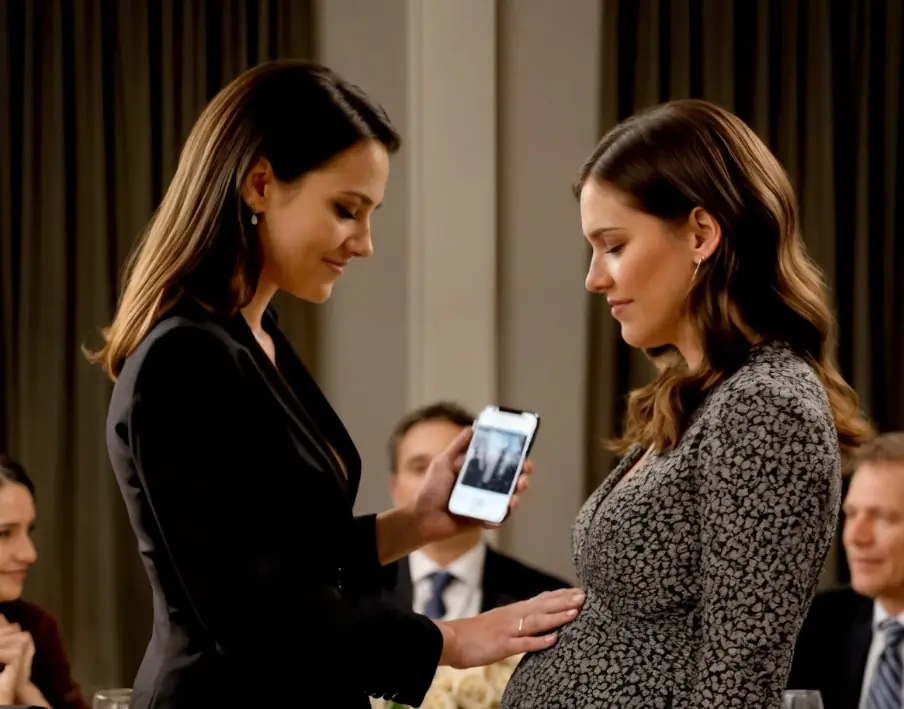
My Sister Mocked Me for Marrying a ‘Simple Farmer’ While Her Husband Was a Finance Genius

My Sister Mocked Me for Marrying a ‘Simple Farmer’ While Her Husband Was a Finance Genius
Ever since I was a child, I lived in the shadow of my older sister, Lila. She was everything I wasn’t: dazzlingly smart, effortlessly elegant, and deeply ambitious. Our parents always said she had a “golden touch” for everything she did. Me? I was quieter, more reserved, and more interested in simple pleasures—like tending the little garden behind our house or listening to the soft hum of the river near our village.
Lila often reminded me of the differences between us. She’d flash her perfect smile and tease, “Marrying a simple guy like you, Claire? You’d better hope he doesn’t get lost in the fields!” I tried to laugh it off, but deep down, her words stung.
It was during the summer after college that I met Tom. He wasn’t flashy. He didn’t wear tailored suits or carry the latest tech gadgets. He smelled of fresh soil and hay, his hands rough but capable. He worked on his family’s farm, tending crops, repairing fences, and caring for animals with a patience I had rarely seen. He was kind, humble, and intelligent in ways that weren’t measured by degrees or bank accounts.
Our first conversation was about sunflowers. He noticed the ones I was planting by the riverbank and asked if I needed help. We talked about seeds, soil, and the peculiar rhythm of the seasons, and for the first time in my life, I felt truly understood. There was a depth to him, a quiet wisdom that drew me in like a magnet.
When I introduced Tom to my family, the reception was… lukewarm. My mother smiled politely, my father nodded, but Lila, oh, Lila had her judgment written all over her face. “A farmer?” she asked, barely hiding her smirk. “Of course. Why not? Maybe he can plow your future for you too.” I swallowed my hurt and smiled. I had always known my sister valued appearances, ambition, and status over simple truths.
We continued dating in secret at first, enjoying long walks along the river, quiet evenings watching the sunset over golden fields, and shared laughter over homemade meals. Tom never tried to impress me with wealth or sophistication. Instead, he impressed me with his honesty, his loyalty, and the way he made every small moment meaningful.
Eventually, I couldn’t hide my happiness. I told my parents, and while they were hesitant, they saw how genuinely happy I was and gave their blessings. Lila, however, reacted differently. She visited me one evening, her designer heels clicking against my wooden floors, her eyes filled with a mixture of pity and amusement.
“Claire,” she began, her tone dripping with condescension, “I just… I don’t understand. Your husband… he’s a farmer. A simple farmer. And here I am married to Marcus, who practically invented the financial strategies that keep his company afloat. Don’t you see? You’re… settling.”
I felt my chest tighten. My fingers gripped the edge of the table. “Lila,” I said softly, “Tom makes me happy. Isn’t that worth more than any title or salary?”
She laughed, a sharp, high laugh. “Happiness? Oh, Claire. You’ll see soon enough that happiness isn’t enough. You need security, ambition… someone who can lift you higher.”
I wanted to argue, to defend my choice, but I only shook my head. Our lives were simply different, and she couldn’t see that.
A year passed. Tom and I got married in a small ceremony by the river, surrounded by friends, family, and the golden fields he loved so dearly. Lila didn’t attend. She sent a gift—a sleek, expensive vase that felt cold in my hands, as if it carried a silent judgment.
Life with Tom was… nothing like the glamorous life Lila seemed to expect. We didn’t have fancy cars or high-rise apartments. Our home was a modest farmhouse, with creaking floors and a garden that required constant care. But we had love, laughter, and a rhythm that suited us perfectly.
Tom worked tirelessly on the farm, yet he always found time for me. On evenings when the sky was painted in shades of pink and orange, we’d sit on the porch, holding hands, talking about our dreams, and sharing quiet moments of contentment. We celebrated small victories—the first bloom of our apple trees, a successful harvest, a surprise visit from neighbors who brought fresh bread. These were the moments that made life feel rich, even if the world saw it as “simple.”
Lila, on the other hand, would call occasionally, her voice polished and cheerful, but I could hear the undertone of judgment. “So, how’s life on the farm?” she’d ask. “Must be… quaint. Not too dull, I hope?”
I learned to smile at her condescension. I no longer needed her approval. My happiness wasn’t defined by her perception of success.
Then, one summer, everything changed. A severe storm hit our village. Rivers overflowed, fields were destroyed, and many neighbors lost their crops. Tom worked day and night to secure our home and help the villagers save what they could. It was exhausting, back-breaking work, and I watched him tirelessly, my heart swelling with admiration.
During that time, Lila called. She sounded frantic. Marcus, her husband, had made a risky financial move—a huge investment in a tech company that failed overnight. She had never seen him so stressed, so powerless. “Claire,” she said, her voice trembling, “I… I don’t know what to do. Marcus… he’s… he doesn’t know how to handle this. I thought he had all the answers, but nothing is working.”
I listened silently, the irony not lost on me. The sister who had mocked my “simple farmer” for being incapable now needed guidance from the very family who had taught us both the value of resilience, patience, and practical problem-solving.
I offered words of comfort, and though she didn’t understand the rhythm of farm life, I could sense that she realized something—perhaps for the first time—that there is more to life than money and prestige. It was a silent acknowledgment, one that didn’t need words.
Months later, Lila visited the farmhouse, unannounced. She wore a simpler outfit than usual, her posture less rigid. She watched as Tom helped repair a fence, his hands calloused and strong, his eyes calm and focused. She turned to me, her voice soft.
“I… I don’t know why I mocked you,” she admitted. “Tom… he’s incredible. I can see why you love him. He… he actually makes life look simple and beautiful, in a way I… never appreciated.”
I smiled, the years of rivalry and judgment melting away in that moment. “It’s okay, Lila. It took me a long time to understand it myself. But happiness isn’t about who earns more or who’s more famous. It’s about who makes you feel whole.”
Lila stayed for the afternoon. She helped us harvest some vegetables, laughed with Tom, and even joined in singing an old folk song as we worked in the fields. For the first time in years, I felt a sense of reconciliation—not just between sisters, but between the two very different worlds we had each chosen.
Over time, our bond grew stronger. Lila began to understand the quiet dignity in Tom’s work, and she started valuing patience and perseverance over instant success. She even confessed that seeing our life together—simple, grounded, but full of love—made her reflect on her own life choices.
As for Marcus, he recovered from his financial loss, but the experience changed him. He became more grounded, more appreciative of simple joys, and more attentive to Lila’s feelings. I think seeing the contrast between our two worlds helped them both rediscover what truly mattered.
Years later, as I watched my children play in the fields, their laughter echoing across the golden landscape, I realized something profound: life’s richness isn’t measured in bank accounts or accolades. It’s measured in love, resilience, and the quiet beauty of shared moments.
Lila came over one evening, carrying a basket of freshly picked apples. She handed one to me and smiled. “You were right, Claire,” she said softly. “Tom isn’t just a simple farmer. He’s… extraordinary. And you… you made the right choice.”
I hugged her, feeling a weight lift off both our shoulders. The rivalry of our youth, the judgments and insecurities, seemed trivial now. What mattered was love, family, and the courage to follow our hearts—even when the world laughed or scoffed.
And as the sun set over the fields, painting everything in gold, I understood that sometimes, the simplest life is the richest of all. Tom and I may not have wealth measured in numbers or a life celebrated in headlines, but we had something far rarer: a life full of meaning, connection, and joy that no one could mock or measure.
The echoes of laughter, the smell of fresh earth, and the warmth of family—these were treasures that no bank account could ever buy. And in that quiet, extraordinary simplicity, I finally understood the true meaning of happiness.
News in the same category


My husband cheated, and I filed for divorce. I haven’t told him about my pregnancy

Mother-in-Law Didn’t Expect That Breaking Up Her Son’s Family Would Boomerang Back on Her

I didn’t know she existed until today. It’s not like she should be sent to an orphanage. She’s my daughter,» the husband said
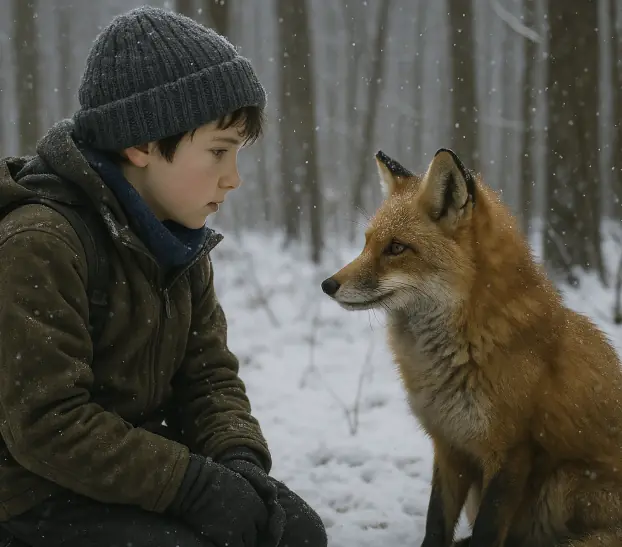
When The Wilderness Chose Them: The Boy And The Fox – A Tale Of Survival And Unexpected Friendship

The Day A Stray Dog Chose Courage Over Fear And Saved A Little Girl
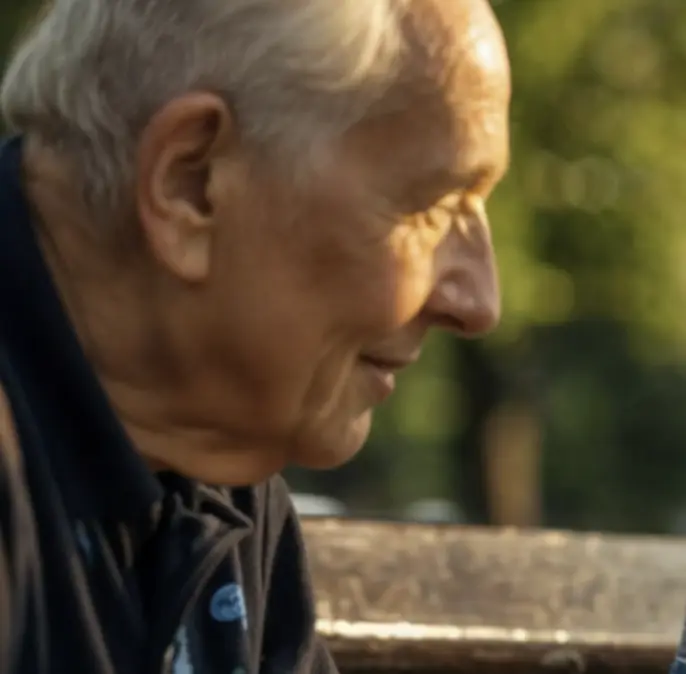
The orphan fed a hungry old man in the park, and the next day, a luxurious car pulled up to the shelter
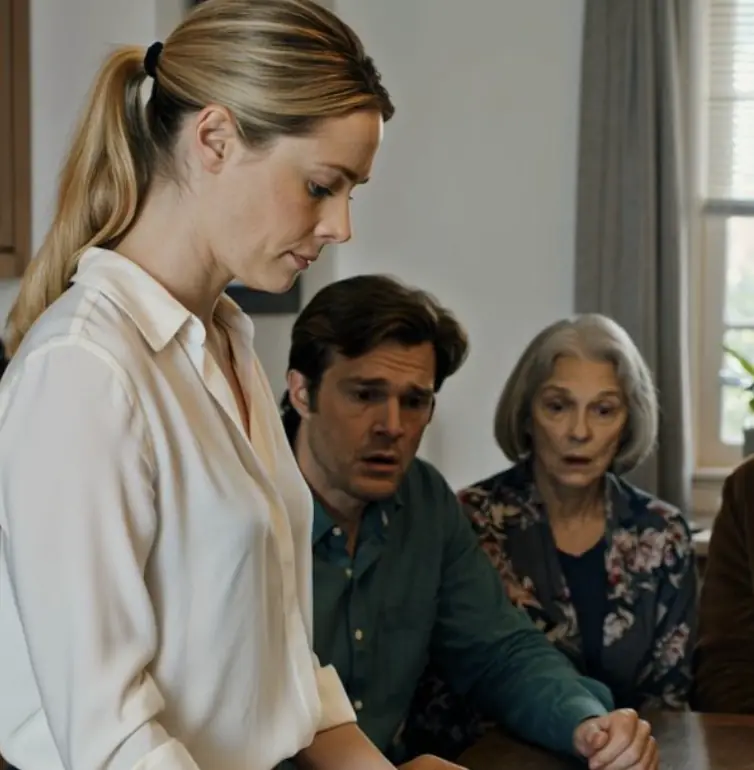
How My Family Tried to Rip Apart My Adopted Daughter While I Was Hospitalized
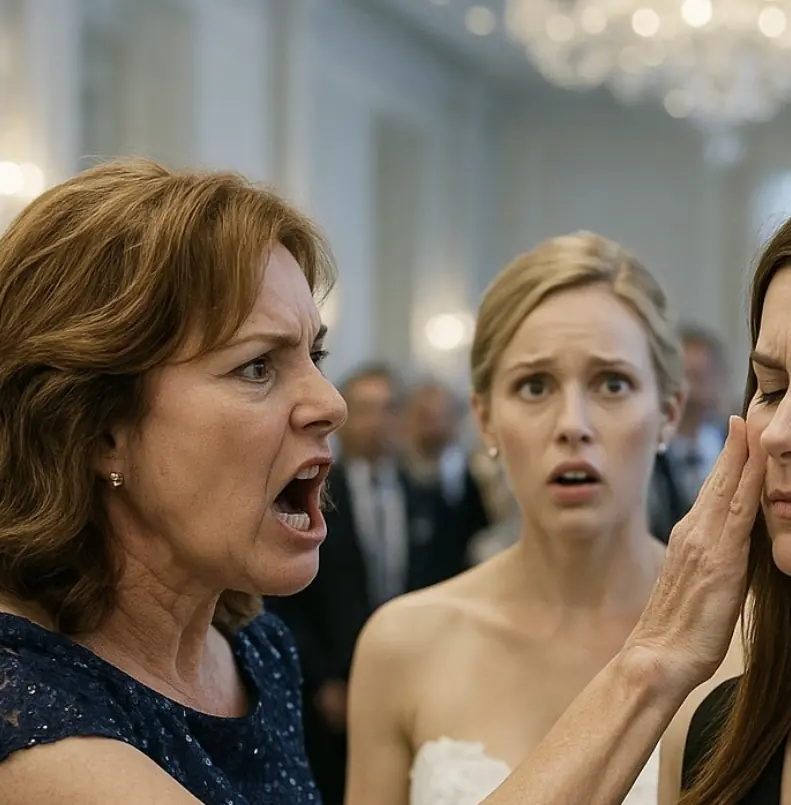
At my sister’s wedding, my parents publicly announced that I would be giving her my two million dollar penthouse

The Hidden Will: How I Outsmarted My Mother-in-Law’s Plot

Celebrate your birthday without me, but my relatives will come, so set the table,” my husband told me

I Found Old Letters in Our Attic—And They Were Addressed to Me… from 10 Years Before I Was Born

The New Neighbor Called Me by My Childhood Nickname—But I’ve Never Met Him Before
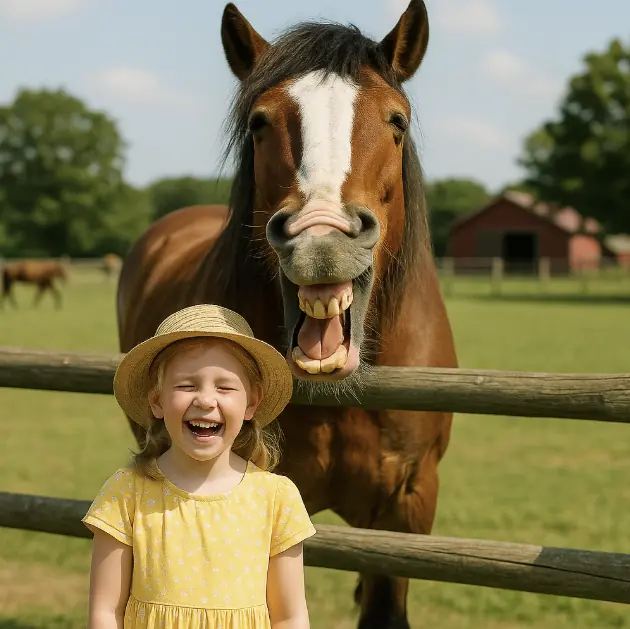
Dad Snaps A Photo Of His Daughter In Front Of Giant Horse, Looks Closer And Can’t Stop Laughing

A Woman Found Out Her Husband Was Cheating

Elena remembered that she had forgotten her money, returned home, and saw something that made her unable to forgive her husband

How a Vintage Suitcase Taught My Son About Respect and Humility

A Hidden Note Reveals the Truth After Our Daughter’s Tragic Passing

How a Loyal Dog Unveiled a Deadly Conspiracy in a Texas Death Row Case
News Post

The rich man came to his father’s village to visit his mother, whom he hadn’t seen for 16 years. But upon seeing an unfamiliar woman by the gate, he was left speechless

When Family Secrets Explode: A Sister’s Deception Unveiled at the Wedding
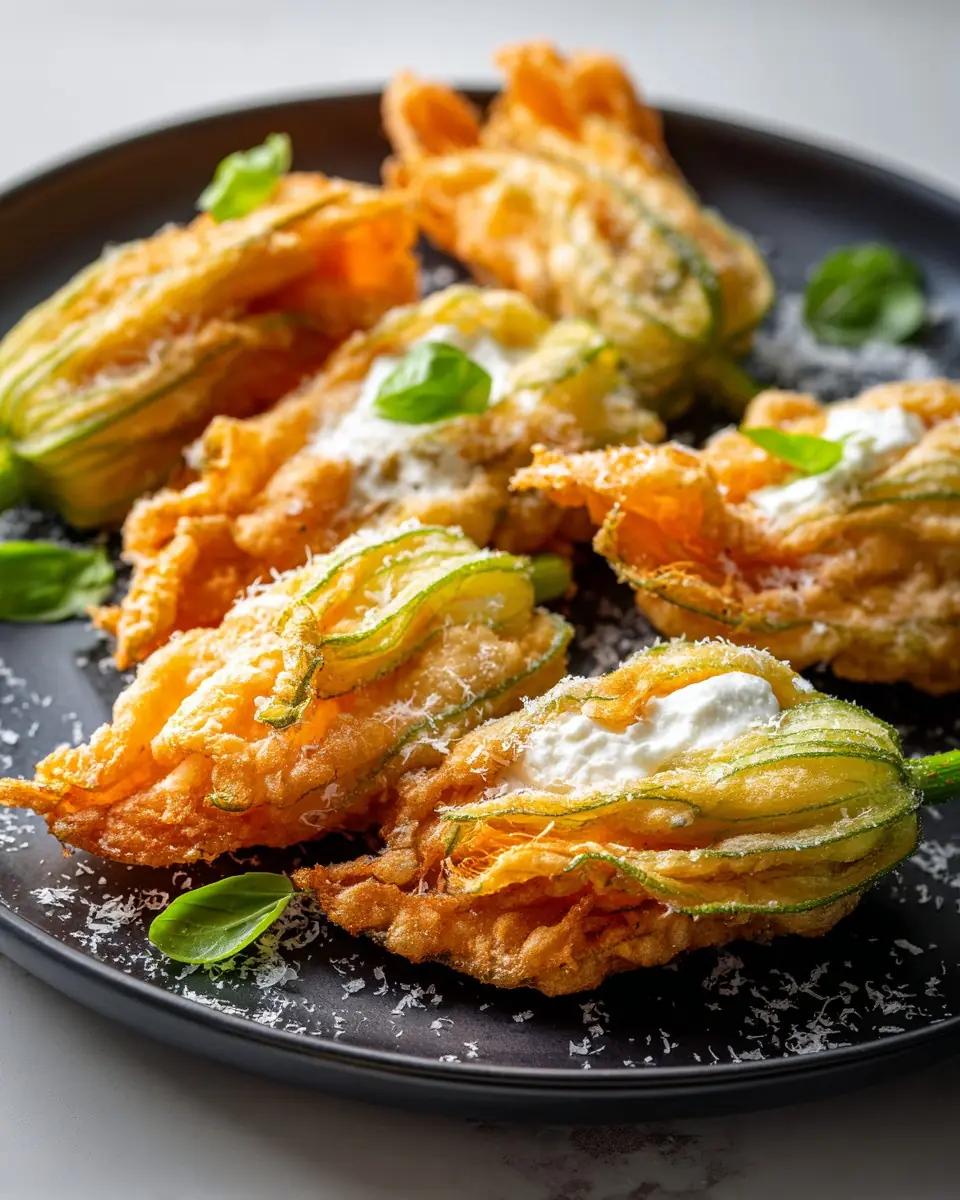
Crispy Burrata Zucchini Blossoms

One-Skillet Garlic Butter Steak & Cheese Ravioli

My husband cheated, and I filed for divorce. I haven’t told him about my pregnancy

Mother-in-Law Didn’t Expect That Breaking Up Her Son’s Family Would Boomerang Back on Her

I didn’t know she existed until today. It’s not like she should be sent to an orphanage. She’s my daughter,» the husband said

When The Wilderness Chose Them: The Boy And The Fox – A Tale Of Survival And Unexpected Friendship

The Day A Stray Dog Chose Courage Over Fear And Saved A Little Girl

The orphan fed a hungry old man in the park, and the next day, a luxurious car pulled up to the shelter

How My Family Tried to Rip Apart My Adopted Daughter While I Was Hospitalized

At my sister’s wedding, my parents publicly announced that I would be giving her my two million dollar penthouse

The Hidden Will: How I Outsmarted My Mother-in-Law’s Plot

Celebrate your birthday without me, but my relatives will come, so set the table,” my husband told me
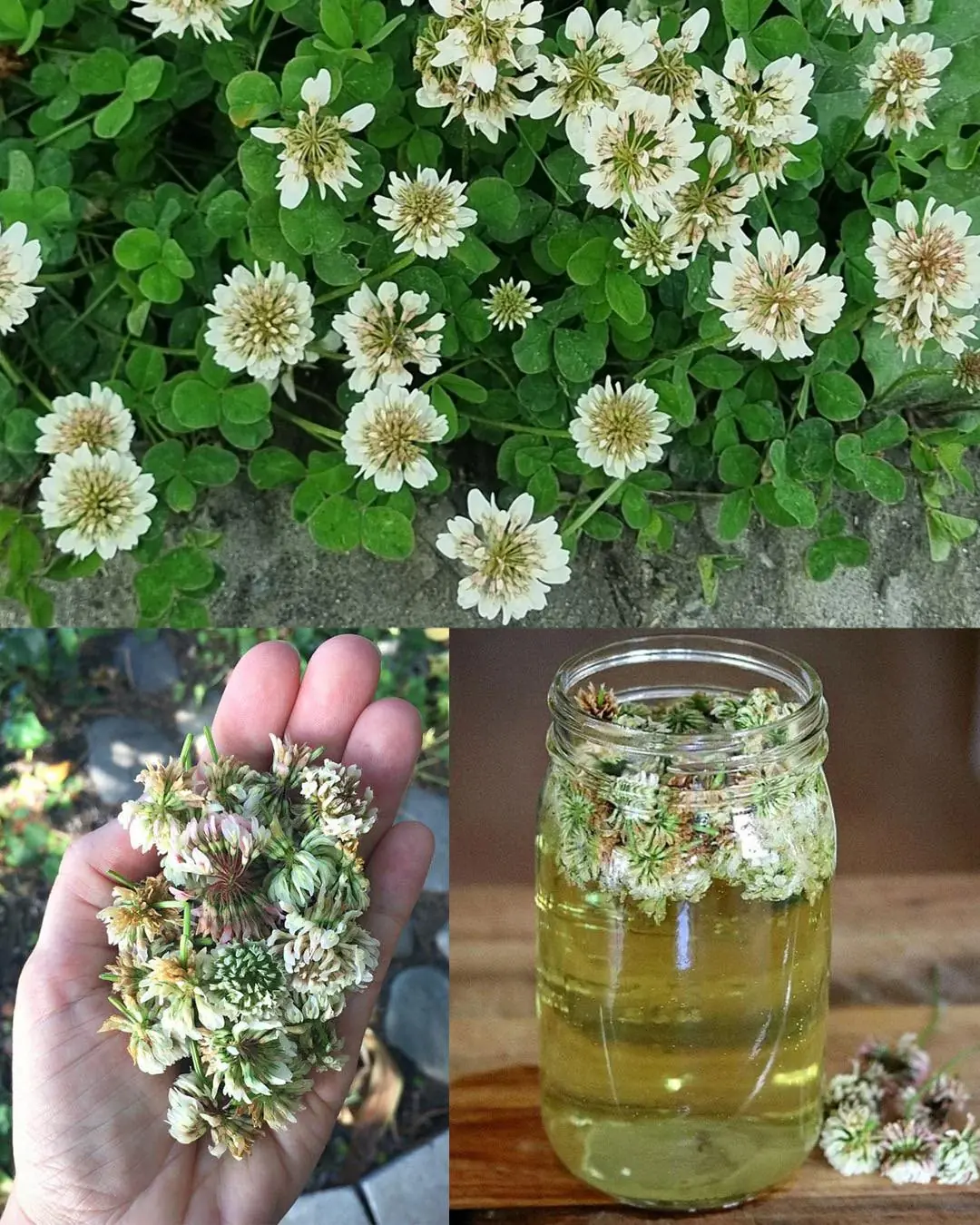
White Clover (Trifolium repens): 15 Benefits and Homemade Uses

Classic Wiener Schnitzel

Pink Cream & Jelly Mochi

Strawberry Milkshake with Whipped Cream
